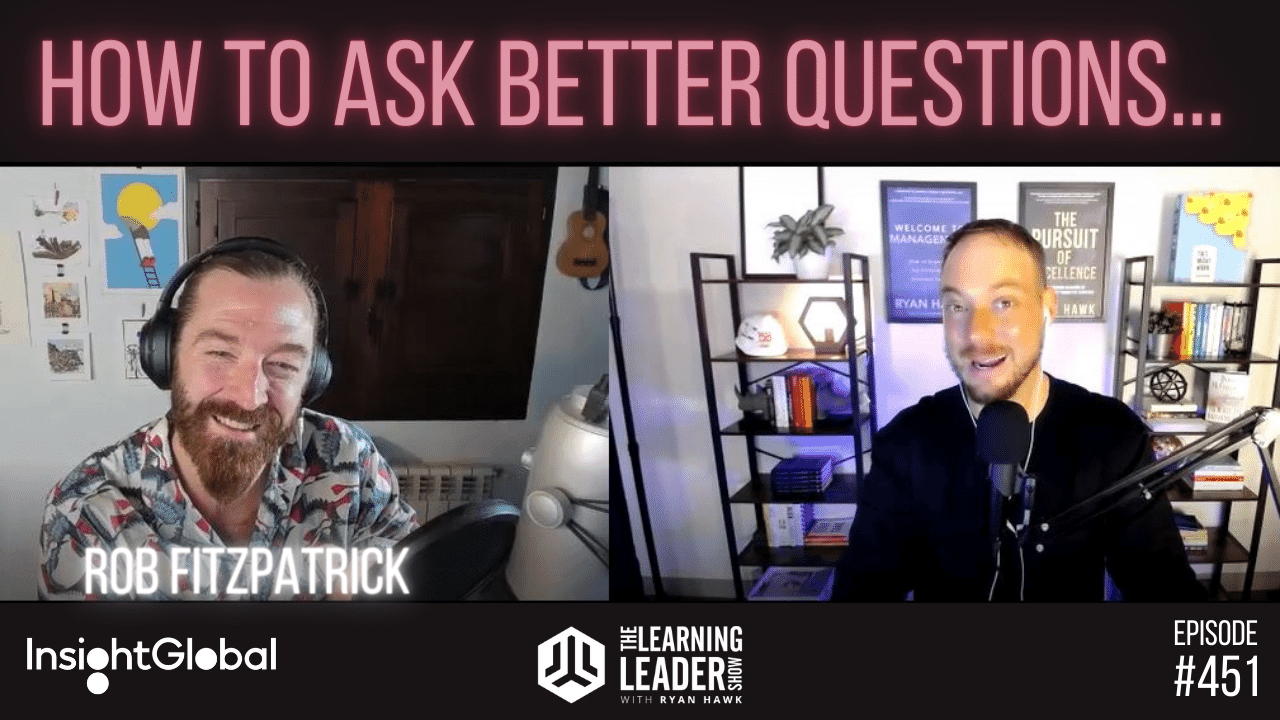Rob Fitzpatrick is an entrepreneur of 14 years and has written three books about his learnings along the way, including the best-selling handbook for doing better Customer Development, The Mom Test: How to talk to customers and figure out if your business is a good idea when everyone is lying to you. In 2007, he dropped out of grad school to go through YCombinator with his first startup and has been building products and businesses ever since. Beyond software, he has also kickstarted a physical card game, built an education agency, and more.
WATCH this conversation on YouTube. And SUBSCRIBE!
Order my new book, The Pursuit Of Excellence
FORBES recently called WELCOME TO MANAGEMENT, “the best leadership book of 2020.”
Be part of “Mindful Monday” — Text LEARNERS to 44222
Subscribe on iTunes or Stitcher Radio
The Learning Leader Show
- The 3 simple rules of the Mom Test:
- Talk about their life instead of your idea
- Ask about specifics in the past instead of generics or opinions about the future
- Talk less and listen more
- How to run better meetings:
- Focus on who will be in your meeting and how to maximize the value they receive while there
- Think about learning outcomes – How will you (as the leader) help them be wiser by going to your meetings
- Running a great workshop… How?
- Vary the teaching formats to improve energy, attention, and learning
- Lectures (for delivering book knowledge and extracting takeaways from exercises)
- Small group and pair discussions (for wrestling with ambiguous options and personal implications)
- “Try it now” practice (for building hands-on skills)
- Scenario challenges (for building wisdom, evaluation, judgment, and decision making)
- Questions and answers (for catching major objections/confusion and adding some flexibility into your schedule)
- Vary the teaching formats to improve energy, attention, and learning
- Learning Outcomes:
- Don’t start with the slides, start with answering a few questions:
- Who is it for?
- Who’s in the room?
- Where am I trying to get them to?
- Don’t start with the slides, start with answering a few questions:
- Excellence:
- Have honesty about your ambitions
- Don’t follow the default view – it doesn’t have to scale
- What is Paul Graham like to work with?
- He has a child-like innocence
- He’s straightforward
- Clearly on your side
- Engaged
- Collaborative
- Having ADHD:
- “I don’t do well on a schedule.”
- What your book needs to do:
- Solve a sharp problem
- Be evergreen
- Talk to users/customers along the way:
- Ask for feedback in the right way…
- Compliments and opinions are garbage data
- Don’t ask, “what do you think of this?”
- Look for signs of early action
- Put yourself out there
- Good questions vs Bad questions:
- Do you think it’s a good idea? (bad question)
- Would you buy a product that did X? (bad question)
- How much would you pay for X? (bad question)
- How much would you pay for X? (bad question)
- What would your dream product do? (Sort of okay question)
- Why do you bother? (good question)
- What are the implications of that? (good question)
- Talk me through the last time that happened (good question)
- What else have you tried? (good question) – Rule of thumb – If they haven’t looked for ways of solving it already, they’re not going to look for (or buy) yours.
- Would you pay Z for a product that did Y? (bad question)
- How are you dealing with it now? (good question)
- Where does the money come from? (good question)
- Who else should I talk to? (good question)
- Is there anything else I should have asked? (good question) – Rule of thumb – people want to help you. Give them an excuse to do so.
- Apply to be part of my Leadership Circle
Resources:
- Read: WELCOME TO MANAGEMENT
- Read: The Pursuit Of Excellence
- Be part of “Mindful Monday” — Text LEARNERS to 44222
- Connect with me on LinkedIn
- Join our Facebook Group: The Learning Leader Community
- To Follow Me on Twitter: @RyanHawk12
More Learning:
Episode 078: Kat Cole – From Hooters Waitress To President of Cinnabon
Episode 216: Jim Collins — How To Go From Good To Great
Episode #300: AJ & Keith Hawk – How To Instill Work Ethic & Curiosity In Your Children
Episode #303: General Stanley McChrystal – The New Definition Of Leadership


Thanks for this – great interview Ryan.
I picked up Rob’s Write Useful Books earlier this year and have also signed up for his Useful Authors community to help me with my new Japan travel guidebook.
I had no idea about his upbringing and his parents’ story is fascinating! Thanks too for the shownotes – much appreciated.